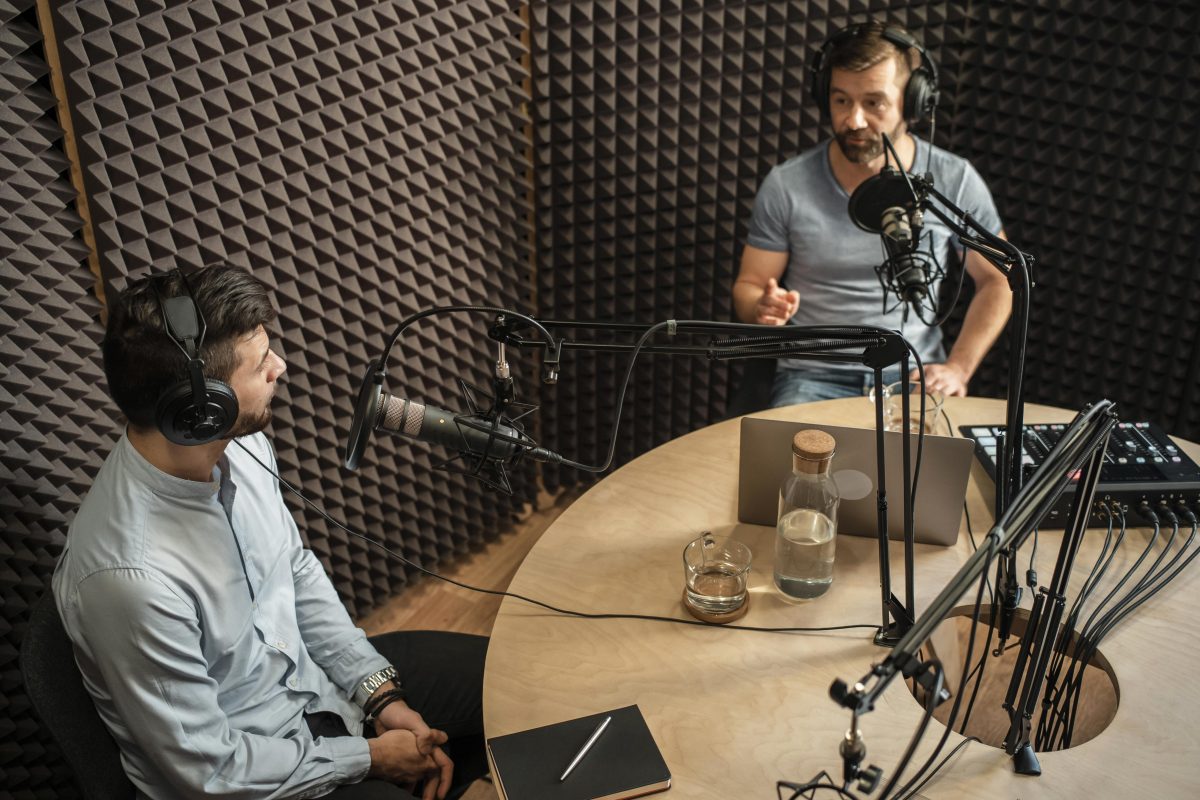Podcasting has become an increasingly popular medium for sharing ideas, stories, and expertise with a global audience. However, creating a successful podcast involves more than just hitting the record button and uploading the audio file. To stand out in the crowded podcasting landscape, it’s essential to focus on the four key elements: planning, production, promotion, and profitability.
Planning
Thorough planning is not just the first step but the bedrock upon which a successful podcast is built. It begins with a clear vision for your podcast’s content and format, which are essential for captivating your audience’s interest and sustaining their engagement. Defining your podcast’s purpose—whether it’s to educate, entertain, inspire, or inform—guides every aspect of content creation and ensures that each episode aligns with your overarching goals. Choosing the right format, whether it’s through interviews, solo monologues, panel discussions, or storytelling, tailors how your message is delivered and received by your audience.
Identifying potential guests is another critical component of planning. Selecting guests who bring valuable insights or diverse perspectives related to your podcast’s theme enhances the depth and appeal of your episodes. A strategic outreach strategy ensures you connect with guests who resonate with your audience and can contribute meaningfully to the discussions.
Understanding your target audience through thorough research and the creation of listener personas is pivotal. By delving into demographics, interests, and preferences, you gain invaluable insights that shape your content strategy. Crafting listener personas further personalizes your approach, helping tailor content to meet specific audience needs and preferences. This understanding not only informs the topics you cover but also dictates how you engage with your audience across various platforms.
Developing a content calendar is the organizational backbone of your podcasting journey. It allows you to plan episodes in advance, ensuring a consistent flow of content that resonates with your audience. By outlining themes, topics, and release schedules, you maintain momentum and avoid last-minute scrambling for ideas. A structured approach also enables you to incorporate timely content while maintaining a balance with evergreen episodes that stand the test of time.
Production
Once the foundational planning stage is complete, transitioning to the production phase marks a critical step in bringing your podcast to life. Investing in high-quality equipment and reliable software is paramount to delivering a polished and professional podcast experience. Quality equipment, such as microphones, audio interfaces, and headphones, ensures clear sound reproduction, minimizing distractions and enhancing listener immersion. Additionally, choosing editing software with robust capabilities allows you to refine your episodes meticulously.
During production, attention to detail is key. Editing plays a pivotal role in crafting a seamless listening experience by removing distractions like awkward pauses, filler words, or background noise. This not only improves overall audio clarity but also maintains listener engagement throughout each episode. Moreover, incorporating music, sound effects, or transitions can add depth and enhance the overall production value, elevating your podcast’s appeal.
Beyond technical considerations, the production phase is an opportunity to inject your podcast with personality and authenticity. Whether through scripting, improvisation, or conversational tone, finding the right style that aligns with your content and resonates with your audience is crucial. Consistency in voice, pacing, and delivery across episodes fosters familiarity and connection with listeners, reinforcing your podcast’s identity and brand.
Ultimately, the production phase represents a commitment to delivering content of the highest quality, ensuring that each episode meets the standards set during the planning stage. By investing time and resources into production, you not only enhance the listener experience but also establish credibility and trust, setting the stage for continued growth and engagement in the competitive podcasting landscape.
Promotion
Promotion is a vital aspect of podcasting that can significantly impact its success and longevity. Despite producing high-quality content through thorough planning and meticulous production, many podcasts struggle to gain visibility and attract a broader audience. This challenge underscores the importance of developing a robust promotion strategy that extends beyond immediate networks.
Social media platforms serve as powerful tools for promoting your podcast to a wider audience. Utilizing platforms like Facebook, Instagram, Twitter, and LinkedIn allows you to share episodes, engage with potential listeners, and cultivate a community around your content. Consistently posting teaser clips, behind-the-scenes footage, or engaging visuals related to your episodes can pique curiosity and encourage followers to tune in.
Collaborating with other podcasters within your niche presents another effective promotional avenue. By cross-promoting each other’s shows or participating in guest appearances, you can tap into established audiences who share similar interests. This collaboration not only expands your reach but also enhances credibility within the podcasting community.
Encouraging listeners to leave reviews and ratings on podcast directories such as Apple Podcasts, Spotify, or Google Podcasts is crucial for improving visibility and attracting new subscribers. Positive reviews and ratings not only influence potential listeners’ decisions but also signal to algorithms that your podcast is worth recommending, thereby boosting its discoverability.
Furthermore, exploring partnerships with influencers, industry experts, or relevant organizations can amplify your promotional efforts. Guest appearances on popular blogs, newsletters, or YouTube channels related to your podcast’s topic can introduce your content to new audiences and drive traffic to your episodes.
Profitability
Profitability is a crucial pillar for sustaining and growing a successful podcast beyond its inception. While passion and content quality are fundamental, ensuring financial viability allows podcasters to invest in ongoing development and maintain audience engagement. Implementing effective monetization strategies is pivotal in achieving this goal. Sponsorships offer a direct revenue stream by partnering with brands aligned with your podcast’s audience. Negotiating sponsorships based on your reach and engagement metrics can provide a reliable income source.
Affiliate marketing presents another avenue, where recommending relevant products or services to your listeners can generate revenue through affiliate commissions. Offering premium content, such as ad-free episodes or exclusive behind-the-scenes access, to subscribers can also diversify revenue streams. Platforms like Patreon facilitate this model, fostering a community of supporters willing to pay for extra content and benefits.
Using specialized software and systems tailored for podcasting can streamline promotional efforts and enhance monetization capabilities. Automation tools help schedule social media posts, email newsletters, and promotional campaigns, ensuring consistent engagement with your audience. Analytics tools provide valuable insights into listener demographics, engagement metrics, and conversion rates, enabling podcasters to optimize strategies and maximize returns on promotional investments.
Integration with e-commerce platforms or affiliate networks simplifies managing partnerships and tracking revenue from affiliate marketing. This systematic approach not only improves operational efficiency but also supports scalability by facilitating sustainable growth and revenue diversification over time.
By focusing on profitability alongside planning, production, and promotion, podcasters can create a sustainable framework for long-term success. Leveraging software solutions to streamline operations and optimize revenue streams not only simplifies management but also enhances the ability to scale and innovate within the competitive podcasting landscape. Embracing these strategies ensures that podcasts not only attract and retain listeners but also thrive financially, fostering continued growth and impact in the evolving digital media landscape.
Conclusion
In conclusion, navigating the dynamic world of podcasting requires a strategic approach encompassing planning, production, promotion, and profitability. Each stage plays a pivotal role in shaping a podcast’s success, from crafting compelling content and ensuring impeccable production quality to effectively promoting episodes and implementing sustainable monetization strategies. By prioritizing thorough planning to define content goals, investing in high-quality production, leveraging diverse promotional channels, and establishing reliable revenue streams, podcasters can cultivate a loyal audience and achieve long-term viability. Embracing specialized tools and systems further enhances operational efficiency and scalability, empowering podcasters to innovate and thrive in a competitive digital landscape.
Ultimately, by balancing creativity with strategic execution across these key pillars, podcasts can not only engage listeners but also sustain growth and make a lasting impact in the evolving podcasting industry.
Frequently Asked Questions
Q: How can I make my podcast stand out in a crowded market?
To make your podcast stand out, focus on creating unique, high-quality content that resonates with your target audience. Develop a distinct brand identity and consistently deliver value to your listeners. Engage with your audience on social media and collaborate with other podcasters in your niche to expand your reach.
Q: What equipment do I need to start a podcast?
To start a podcast, you’ll need a microphone, recording software, and a quiet space to record. Invest in a quality microphone that suits your budget and recording needs. Popular recording software options include Audacity, GarageBand, and Adobe Audition. As your podcast grows, you may want to consider upgrading your equipment for better sound quality.
Q: How often should I release new podcast episodes?
The frequency of your podcast episodes depends on your content, target audience, and personal schedule. Consistency is key, so choose a release schedule that you can maintain long-term. Many successful podcasts release new episodes weekly or bi-weekly, but some opt for daily or monthly schedules. Experiment and find what works best for you and your listeners.
Q: How can I monetize my podcast?
There are several ways to monetize your podcast, including sponsorships, affiliate marketing, and creating premium content. Reach out to companies that align with your podcast’s theme and audience to secure sponsorships. Promote relevant products or services through affiliate links and earn a commission on sales. Consider offering exclusive content, such as bonus episodes or ad-free versions, to subscribers for a fee.
Q: How long should my podcast episodes be?
The ideal length of your podcast episodes depends on your content and target audience. Some popular formats include short-form episodes (15-30 minutes), mid-length episodes (30-60 minutes), and long-form episodes (60+ minutes). Pay attention to your audience’s engagement and feedback to determine the optimal length for your show. Aim to deliver value and keep your listeners engaged throughout each episode, regardless of duration.
Featured Image Credit: Photo by Freepik; Thank you!








